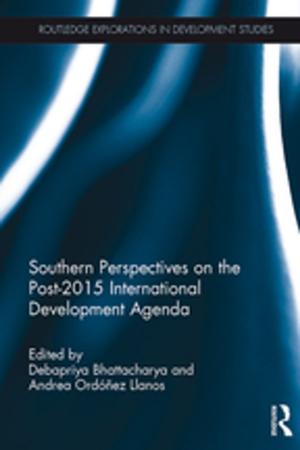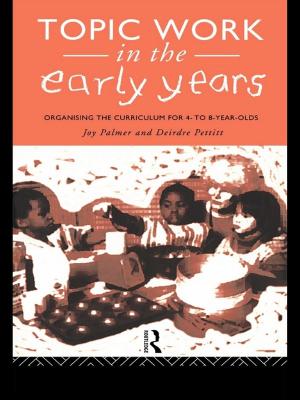In the Shadows of the Holocaust and Communism
Czech and Slovak Jews Since 1945
Nonfiction, Social & Cultural Studies, Social Science, History| Author: | Alena Heitlinger | ISBN: | 9781351512886 |
| Publisher: | Taylor and Francis | Publication: | July 12, 2017 |
| Imprint: | Routledge | Language: | English |
| Author: | Alena Heitlinger |
| ISBN: | 9781351512886 |
| Publisher: | Taylor and Francis |
| Publication: | July 12, 2017 |
| Imprint: | Routledge |
| Language: | English |
When traumatic historical events and transformations coincide with one's entry into young adulthood, the personal and historical significance of life-course transitions interact and intensify. In this volume, Alena Heitlinger examines identity formation among a generation of Czech and Slovak Jews who grew up under communism, coming of age during the de-Stalinization period of 1962-1968.
Heitlinger's main focus is on the differences and similarities within and between generations, and on the changing historical and political circumstances of state socialism/communism that have shaped an individual's consciousness and identity—as a Jew, assimilated Czech, Slovak, Czechoslovak and, where relevant, as an emigre or an immigrant. The book addresses a larger set of questions about the formation of Jewish identity in the midst of political upheavals, secularization, assimilation, and modernity: Who is a Jew? How is Jewish identity defined? How does Jewish identity change based on different historical contexts? How is Jewish identity transmitted from one generation to the next? What do the Czech and Slovak cases tell us about similar experiences in other former communist countries, or in established liberal democracies?
Heitlinger explores the official and unofficial transmission of Holocaust remembering (and non-remembering), the role of Jewish youth groups, attitudes toward Israel and Zionism, and the impact of the collapse of communism. This volume is rich in both statistical and archival data and in its analysis of historical, institutional, and social factors. Heitlinger's wide-ranging approach shows how history, generational, and individual biography intertwine in the formation of ethnic identity and its ambiguities.
When traumatic historical events and transformations coincide with one's entry into young adulthood, the personal and historical significance of life-course transitions interact and intensify. In this volume, Alena Heitlinger examines identity formation among a generation of Czech and Slovak Jews who grew up under communism, coming of age during the de-Stalinization period of 1962-1968.
Heitlinger's main focus is on the differences and similarities within and between generations, and on the changing historical and political circumstances of state socialism/communism that have shaped an individual's consciousness and identity—as a Jew, assimilated Czech, Slovak, Czechoslovak and, where relevant, as an emigre or an immigrant. The book addresses a larger set of questions about the formation of Jewish identity in the midst of political upheavals, secularization, assimilation, and modernity: Who is a Jew? How is Jewish identity defined? How does Jewish identity change based on different historical contexts? How is Jewish identity transmitted from one generation to the next? What do the Czech and Slovak cases tell us about similar experiences in other former communist countries, or in established liberal democracies?
Heitlinger explores the official and unofficial transmission of Holocaust remembering (and non-remembering), the role of Jewish youth groups, attitudes toward Israel and Zionism, and the impact of the collapse of communism. This volume is rich in both statistical and archival data and in its analysis of historical, institutional, and social factors. Heitlinger's wide-ranging approach shows how history, generational, and individual biography intertwine in the formation of ethnic identity and its ambiguities.















